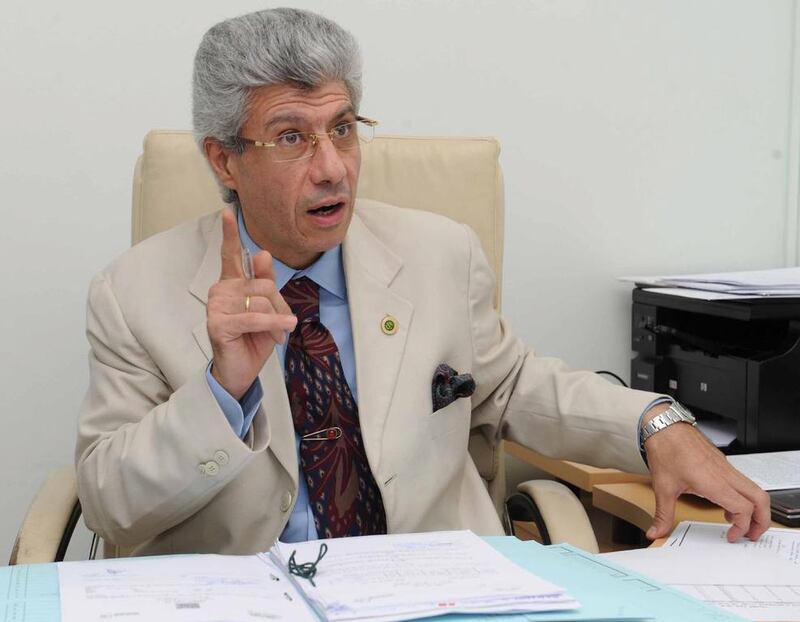DUBAI // Judge Ayman Abdul Hakam must be one of the busiest men in his profession. Few judges would be able to say that they have settled 6,000 cases in just over seven weeks, but that’s exactly what Judge Hakam has achieved since the launch of the One Day Court in Dubai in March.
Set up under the directive of Sheikh Mohammed bin Rashid, Vice President and Ruler of Dubai, the court was devised to take pressure off other Dubai courts and to reduce the number of people being locked up for minor offences.
“In one day I hear about 200 cases in which the defendants are not present, and between 60 and 80 cases where defendants appear before me,” said Judge Abdul Hakam. “This is a first-of-its-kind initiative in the region. All procedures are completed the same day – police and prosecution investigations and then the court sentencing – it’s a unique initiative.”
The court deals with charges such as: issuing dud cheques with malicious intent; consuming alcohol without a licence; illegal possession of alcohol; failure to pay due fees; begging; illegal vendors; and consensual sex outside of wedlock.
“The consensual sex cases mainly involve women who engaged in an illicit relationship that resulted in them having a child,” the judge said.
“So, when she decides to return home, she turns herself in. In the last hearing there were two such cases and one of them was a woman who had two children from an illicit relationship.
“In this case, the court tends to deport them immediately.”
Judge Abdul Hakam said that about 80 per cent of his workload at the One Day Court related to bounced cheques, with his day of hearings starting at about 10.30am
His court is based at Al Muraqqabat Police Station and receives cases from Al Muraqqabat, Naif, Al Qusais and Al Rashidya police stations.
“Did you issue a cheque of Dh550,000?” the judge asked the defendant, who admitted his guilt before it was explained to him that he could have a verdict issued there and then or reschedule the hearing to give time to reach a settlement with the plaintiff.
The defendant replied that he wanted a verdict and was sentenced to three months in jail.
Another defendant asked for, and was granted, a rescheduled hearing to allow him to settle his debt.
“The higher the amount of the cheque, the tougher the sentence will be,” the judge said. “Cheques above Dh150,000 would be punished with prison.”
No matter whether the sentence was jail or a fine, he said, it did not affect the plaintiff’s right to file a civil case demanding compensation, a detail that often surprised defendants.
In another case, a woman was brought in from Dubai airport on charges of consuming alcohol without a licence.
“You were apprehended for being excessively drunk while trying to board a connecting flight, are you guilty?” the judge asked.
The woman admitted the offence and was fined Dh1,000.
Several other defendants admitted issuing bounced cheques and were fined between Dh2,500 and Dh9,000, based on the cheque amount.
Not all cases are clear cut and settled right away. Sometimes defendants deny charges and request time to appoint a lawyer, which they are granted by the court, so the cases are settled at the second hearing.
Translators are also present to interpret the judge’s questions to defendants who do not speak Arabic.
Dealing with so many cases inevitably makes for long working days for judge Hakam, who regularly works 12 hours a day, eight in court and the rest at home.
“The pressure is unbelievable,” he said.
“Sometimes I feel it’s beyond human powers, but still this pressure doesn’t jeopardise always looking at the humane aspect of each case.
“I put myself in their place. I read, investigate the file, evaluate evidence and circumstances then give a judgement.
“And despite the full schedule, I always make time for sport and reading.”
salamir@thenational.ae







